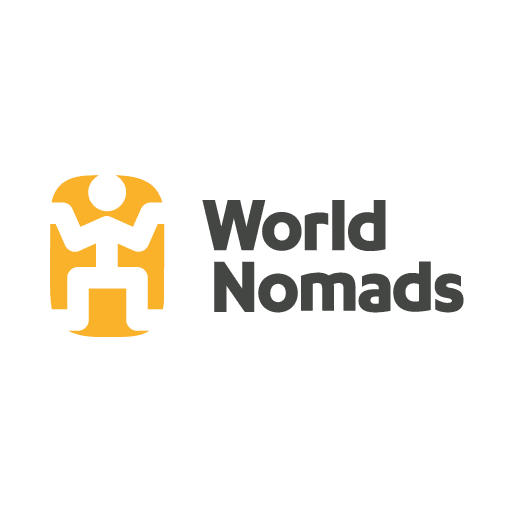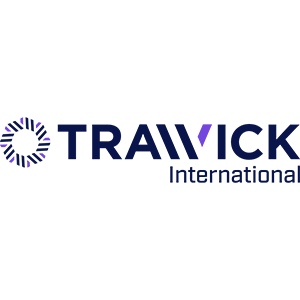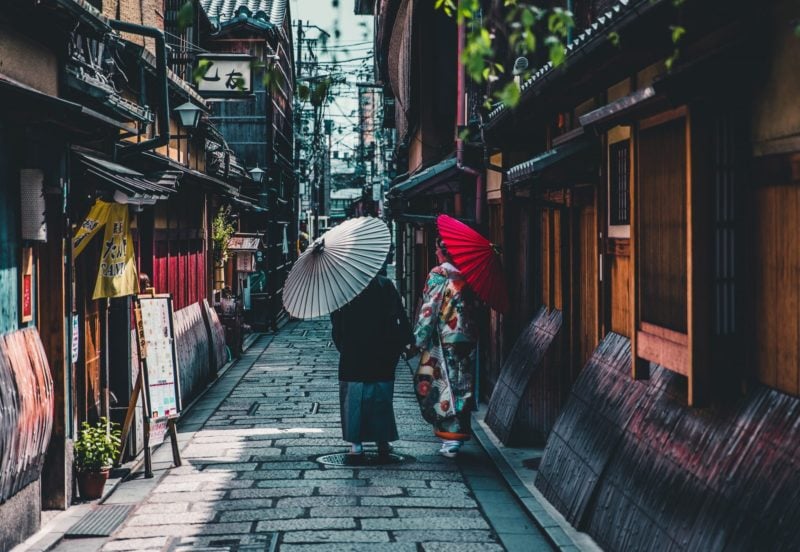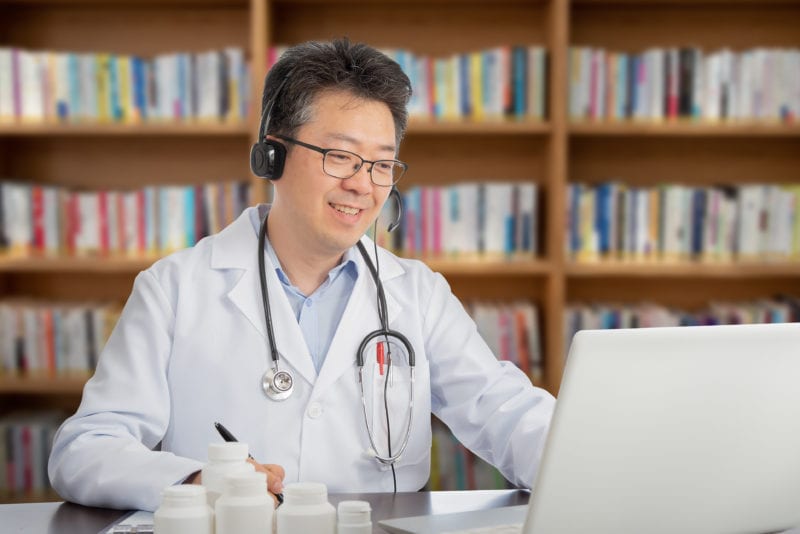
South Korea Travel Insurance for Visitors
 When planning a trip to South Korea, there are several important things to keep in mind. The country has extremely muggy summers, so pack lightweight clothes and sun protection for that season. For winter travel to South Korea, you'll want many layers to counter the freezing conditions. Prepare an itinerary, whether you're exploring the urban sights in Seoul or the natural beauty of Jeju Island. Get ready to eat Korean food that's sweet, savory, or spicy. And don't forget about travel insurance. Depending on the level of coverage you select, travel insurance for South Korea can protect you in case of an accident or illness, if your trip is canceled or delayed, or if you engage in extreme sports.
When planning a trip to South Korea, there are several important things to keep in mind. The country has extremely muggy summers, so pack lightweight clothes and sun protection for that season. For winter travel to South Korea, you'll want many layers to counter the freezing conditions. Prepare an itinerary, whether you're exploring the urban sights in Seoul or the natural beauty of Jeju Island. Get ready to eat Korean food that's sweet, savory, or spicy. And don't forget about travel insurance. Depending on the level of coverage you select, travel insurance for South Korea can protect you in case of an accident or illness, if your trip is canceled or delayed, or if you engage in extreme sports.
When planning a trip to South Korea, there are several important things to keep in mind. The country has extremely muggy summers, so pack lightweight clothes and sun protection for that season. For winter travel to South Korea, you'll want many layers to counter the freezing conditions. Prepare an itinerary, whether you're exploring the urban sights in Seoul or the natural beauty of Jeju Island. Get ready to eat Korean food that's sweet, savory, or spicy. And don't forget about travel insurance. Depending on the level of coverage you select, travel insurance for South Korea can protect you in case of an accident or illness, if your trip is canceled or delayed, or if you engage in extreme sports.
Do I Need Travel Insurance for South Korea?
Visitors aren't required to purchase travel insurance to go to South Korea. Yet while South Korea is a safe country to visit, signing up for a policy is a good idea for both your financial security and peace of mind.
For example, when you go out to eat tteokbokki or jajangmyeon, a miscommunication about a food allergy could send you straight to the hospital. You might slip and twist your ankle while exploring Seoraksan National Park. A motorcyclist veering onto a sidewalk could knock you over.
While visiting South Korea, you'll have access to high-quality doctors and up-to-date treatments. But without insurance, this care can be very expensive. Travel medical insurance will protect you from having to pay for hospital stays, surgery, and medication yourself. Some plans will also cover the costs of transporting you back to your home country following an accident or other emergency.
Best Travel Insurance for South Korea
Before you make a decision about what kind of policy to buy, think about your upcoming trip. Might you have to postpone your travels to visit an ailing family member? Do you want to go skiing where the 2018 Olympics took place? Or do you want the security of knowing you won't have to pay unexpected healthcare costs all on your own?
Our licensed brokers understand all the ins and outs of South Korea travel insurance. Whether you'd like a policy to cover unexpected medical expenses, trip cancellation and delays, or your participation in "extreme" sports, we will help you find the best policy at a price you can afford.

GeoBlue Voyager Plan
- For U.S. citizens up to age 95
- Includes pregnancy coverage, baggage loss, trip interruption & more
- 24/7/365 service and assistance

Atlas Travel Insurance
- Emergency medical, evacuation, repatriation benefits
- Choose between the basic and more extensive coverage
- Meets Schengen visa insurance requirements
- 24/7 worldwide travel and emergency medical assistance

Patriot Platinum Travel Insurance
- Maximum limits up to $8,000,000
- IMG pays 100% of medical expenses in-network
- Evacuation due to Natural Disasters & Political Unrest
How Much Does Travel Insurance Typically Cost?
The costs for a South Korea travel insurance policy can vary. Factors in calculating the price include the length of the trip, the age of the person or people being covered, and the type of policy you desire. For example, a travel policy that allows you to cancel your trip for any reason offers a high degree of flexibility but usually comes with a higher price tag.
How Do I Get Travel Insurance for Korea?
Many companies that offer International Health Insurance also offer Travel Insurance. We put together a list of the Top 10 Travel Insurance Companies. Our agents are also happy to walk you through the different options, from basic travel medical insurance, trip cancellation, medical evacuation and more.
Looking for International Travel & Medical Insurance?
Request a free quote and one of our specialists will contact you.
For your trip to South Korea, you may also want a travel policy that includes extreme sports coverage. Many common sports can fall under the "extreme" rubric. If you’ll be hiking Mt. Hallasan or paragliding around Jeju Island, you need this kind of policy.

World Nomads Adventure Activities Travel Insurance
- Coverage for 150+ adventure activities
- 24/7 emergency assistance
- Baggage and gear cover
Another option for your South Korean travels is trip cancellation coverage. Depending on the level of coverage in your policy, some policies allow you to cancel for any reason, and this will absorb some or even all of the costs if you have to cancel your trip. Travel delay coverage offers similar protection if your trip is interrupted by something like a flight delay.

Safe Travels Voyager
- Valid for U.S. citizens/residents traveling within the U.S. and/or internationally
- Comprehensive coverage for trip cancellation, trip interruption, emergency medical and post-departure travel coverage
- Cancel for Any Reason (CFAR) available
Medical Preparation for Travel to South Korea
Below you will find three popular international travel medical insurance plans that provide coverage in South Korea. The GeoBlue Voyager plan is only for U.S. citizens traveling outside the U.S. to South Korea. The WorldTrips Atlas and IMG Patriot Platinum plans are available to U.S. and non-U.S. citizens traveling to South Korea. If you are interested in learning more about a particular plan, review its brochure or click to get a free quote and one of our specialists will contact you.
What Vaccinations Do I Need for Travel to South Korea?
South Korea does not require visitors to receive specific vaccinations before traveling there. However, health authorities like the U.S. Centers for Disease Control recommend that you be up-to-date on regular vaccinations, including chickenpox, polio, flu, COVID-19, and hepatitis A and B.
How to Bring Medications to South Korea
If you regularly take any prescription or over-the-counter medicines, you'll want to travel with your medication. Fortunately, South Korea’s rules for foreigners include a process for you to do this legally.
South Korea has strict regulations regarding narcotics, a category that includes common medications like Adderall (an amphetamine). However, under South Korea’s travel requirements, you don't need to worry about carrying a narcotic medication if you're simply transiting through the country. If you want to stay in South Korea and take your medicine, the country's Ministry of Food and Drug Safety (MFDS) can approve you importing a personal supply of medication.
To get permission to bring a narcotic medication into South Korea:
- Follow the steps on how to obtain a "Self Treatment Narcotics Bring in Permit" with the Ministry of Food and Drug Safety. There is an English version of the application, so it's not necessary to complete it in Korean.
- If you're not sure if your medication requires approval, you can send an email to narcotics@korea.kr or call the ministry at +82-43-719-2813.
- You need to submit your application to the MFDS at least 10 business days before your trip.
For medications that are not narcotics, you don’t need to ask the MFDS for permission to travel with them. However, you should bring your original prescriptions and a note from your doctor explaining your conditions and the medications you take. You can travel with a three-month supply, up to six bottles of medication.
Can I Bring Medical Marijuana to South Korea?
In 2020, South Korea legalized the medical use of marijuana. Yet even with a doctor's prescription from your home country, you cannot bring medical marijuana into South Korea. It's also illegal to carry medicinal or over-the-counter CBD products into South Korea. Avoid trouble and don't pack any items with CBD as an ingredient! If you travel with CBD products, you could be detained or even arrested.
Looking for International Travel & Medical Insurance?
Request a free quote and one of our specialists will contact you.
Frequently Asked Questions about Travel to South Korea and Its Healthcare System
Foreign visitors can go to the same healthcare facilities as South Koreans. It’s common for residents to seek care at a hospital instead of first visiting a primary care physician, even in non-urgent situations such as a cold or sprained ankle because of the way South Korea’s Healthcare System is set up. You can do the same, but remember you’ll be expected to pay for your care!
Call 119 for an ambulance. Don’t worry if you don’t speak Korean — assistance in English is available.
Travelers may visit any hospital in South Korea. Foreign visitors can also head directly to a hospital for treatment, as long as they can move on their own.
Many healthcare facilities allow patients to schedule appointments online. If you have a travel policy, and you can spare a moment before seeking care, check with your provider to see if there is a nearby hospital or urgent care center that accepts your insurance.
Healthcare providers in urban areas are likely to speak some English. Providers in rural areas may not be used to speaking English, so bring a dictionary or translator if you have to seek care.
In rural areas, you will find fewer options for care. 90% of South Korean doctors work in cities.
If you have to be admitted to the hospital, try to have a friend or family member accompany you. Hospitalized South Koreans usually have a “bohoja” (guardian) to handle tasks such as getting food and changing bedding. Also keep in mind that large hospitals and other medical settings may require you to wear a mask. If you don’t obey this rule, you could be fined.
South Korea has a public healthcare system for citizens and residents. However, tourists and short-term visitors will not receive free healthcare in South Korea. If you need to go to the hospital or see a doctor, you’ll be expected to pay for your treatment at the time of service — and it can be quite expensive.
A travel medical policy will cover some or all of your expenses if you need care during your stay. Sign up for a policy before your trip to make sure you’re financially protected in case of an unexpected illness or injury. Our licensed brokers would be delighted to help you find an affordable policy with comprehensive coverage.
For your own safety and security in South Korea, check travel alerts before and during your stay. The following pages will let you know about domestic conflicts, disease outbreaks, and other developing situations.
- US Department of State page on South Korea
- Australian government Smartraveller page on South Korea
- Gov.UK Foreign Travel Advice section on South Korea
- Government of Canada travel advisory page for South Korea
- Singapore Ministry of Foreign Affairs page on South Korea
You can also download South Korea’s own “Emergency Ready” app to your Apple or Android smartphone. During emergency situations, this app provides updates in Korean, English, and Chinese.
Monitoring the sites mentioned above is more of a precaution than a necessity. South Korea is a politically stable country, and its crime rates are very low. However, the country is still technically at war with North Korea. Periodic missile launches from North Korea are one sign of this unresolved conflict.
South Korea has experienced an increasing number of earthquakes in recent years. Fortunately, most of these quakes have been small ones. If a quake strikes while you’re in South Korea, pay attention to instructions from local authorities.
South Korea has some protection from tsunamis, as Japan is the first target for tsunamis that form in the Pacific Ocean. But local quakes may generate a tsunami that can strike the Korean peninsula. Be prepared to head to higher ground after an earthquake. As roads may be damaged or crowded with cars, you will likely have to walk.
Looking for International Travel & Medical Insurance?
Request a free quote and one of our specialists will contact you.
What Should I Be Careful of in South Korea?
South Korea, which has some of the lowest crime rates in the world, is a very safe country for tourists to visit. But no matter how secure a country is, there are ways to further protect yourself. Pay attention to the following travel tips and your safety in South Korea will be even more assured.
1. Don’t Relax Too Much
Is South Korea safe? Yes, it’s one of the safest countries in the world! However, prevention is a key part of safety, so don’t let your guard down completely when in public. Keep an eye on your belongings in crowded areas—pickpockets and other thieves can target tourists. Don’t leave your drinks unattended in a bar or nightclub, as drink spiking can happen anywhere.
2. Prepare for the Weather
The Korean climate is one of extremes. It can be sweltering and muggy in the summer and freezing cold in the winter. Severe typhoons can hit in August and September. Packing appropriately will help prevent conditions like heat exhaustion or frostbite.
3. Pay Attention to Air Quality
In the spring, yellow dust (“HwangSa”) pollution from China and Mongolia can wash over South Korea. You’ll be safer staying indoors if yellow dust arrives during your trip. If you can’t avoid going outside, wear a protective mask.
4. Steer Clear of Demonstrations
Public demonstrations are a common sight in South Korea. But if you see one going on, exercise caution. These demonstrations can sometimes become violent.
5. Watch Out for Cars
Jaywalking is against the law in South Korea. If you’re spotted in the act, you may receive a ticket. Yet even if you’re obeying traffic laws and have the right of way, be cautious: South Korea is not the safest country for pedestrians — another reason why medical coverage is a very good idea.
6. Follow Instructions in the DMZ
Tourists are allowed to visit the demilitarized zone, a strip of land that serves as a buffer between South and North Korea. But if you opt for a trip to the DMZ, be prepared to follow instructions from your tour guides and local authorities. Tensions still run high in this area.
7. Don’t Be Surprised by Civil Exercises
Given the country’s tensions with North Korea, South Korea’s safety procedures include regular civil emergency exercises. During these exercises, you will hear sirens and notice that public transportation stops running. South Koreans may shelter in designated areas. Visitors from other countries do not have to participate in these exercises, but do your best not to interfere with them.
8. Stay Alert During Earthquakes
If an earthquake hits while you’re in South Korea, don’t panic. Instead, if you’re inside, cover your head and remain in place. If you’re outside, try to move to an open space away from buildings and power lines. Be prepared for aftershocks following the initial quake. Be ready to walk to higher ground if you’re on the coast and there’s a tsunami warning.
9. Pack Carefully
Before traveling to South Korea, make sure you’re not bringing anything that’s not permitted in the country. You need to apply for permission to bring in narcotic medications such as Adderall. Start this process at least ten business days ahead of your trip. And no matter how accessible CBD products are in your home country, you can’t take them into South Korea. Check your bags to ensure you haven’t inadvertently packed anything made with CBD oil.
Looking for International Travel & Medical Insurance?
Request a free quote and one of our specialists will contact you.
Emergency Contact Information for South Korea
Emergency Assistance Numbers in South Korea
If you have a medical emergency in South Korea, dial 119 and request an ambulance. You don’t need to speak Korean as this line offers access to English-speaking doctors who can assist you.
To report a crime, including sexual assault, call 112 to reach the Korean National Police. If you don’t speak Korean, you’ll be provided with an interpreter.
Embassy Phone Numbers in South Korea
- U.S. Embassy in Seoul: 82 (0)2 397-4114
- Embassy of Canada in Seoul: 82 2 3783 6000
- British Embassy Seoul: 82 (0)2 3210 5500
- Ambassade de France à Séoul: 82 (2) 3149 4300
- Australian Embassy in the Republic of Korea, Seoul: 82 2 2003 0100
- New Zealand Embassy, Seoul: 82 (2) 37017700
Travel Safely in South Korea
Nothing here should make you worry about your upcoming trip to South Korea. Instead, the precautions and advice will serve to help you make the most of your trip. It’s always better to plan ahead instead of scrambling to figure out what to do in case of an emergency. Now that you’re more prepared, enjoy your Korean adventures!
Looking for International Travel & Medical Insurance?
Request a free quote and one of our specialists will contact you.



